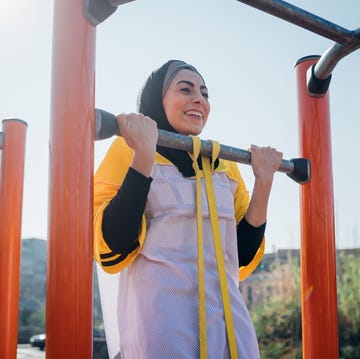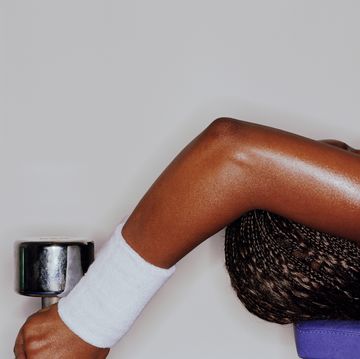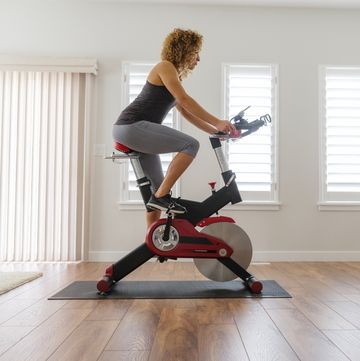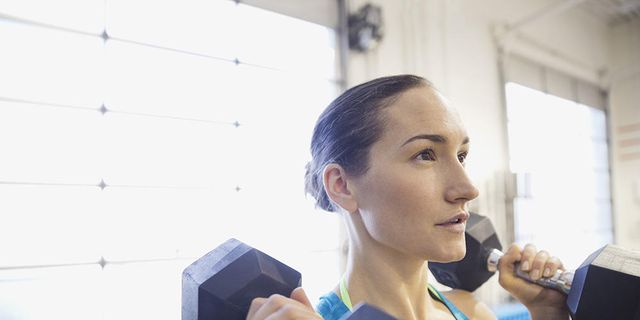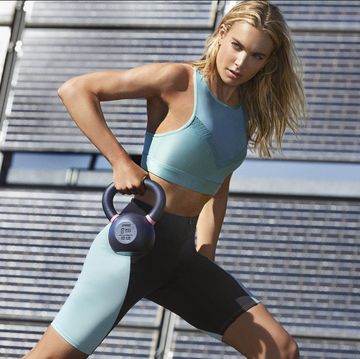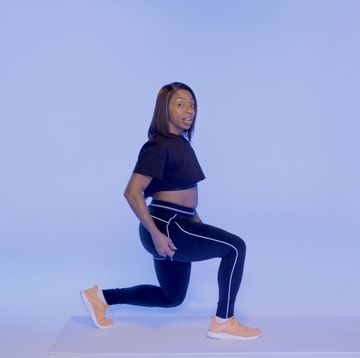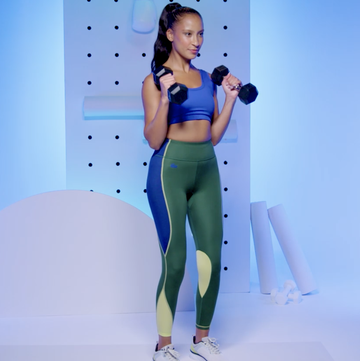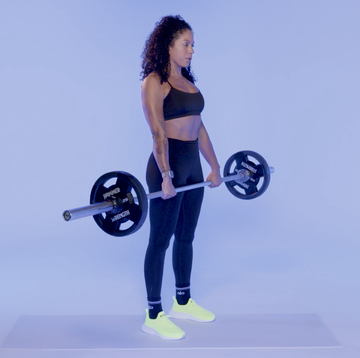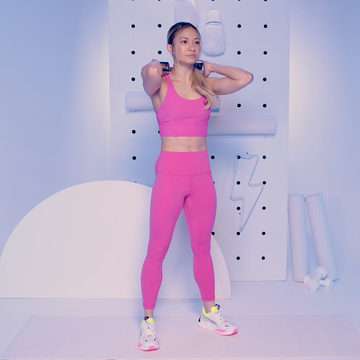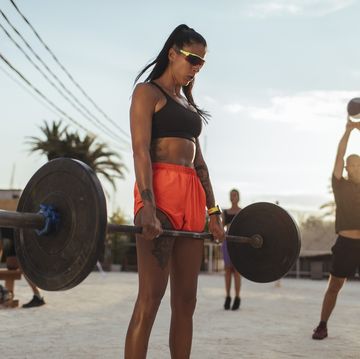Don't make any decisions about whether or not to stick with it in those first few weeks.
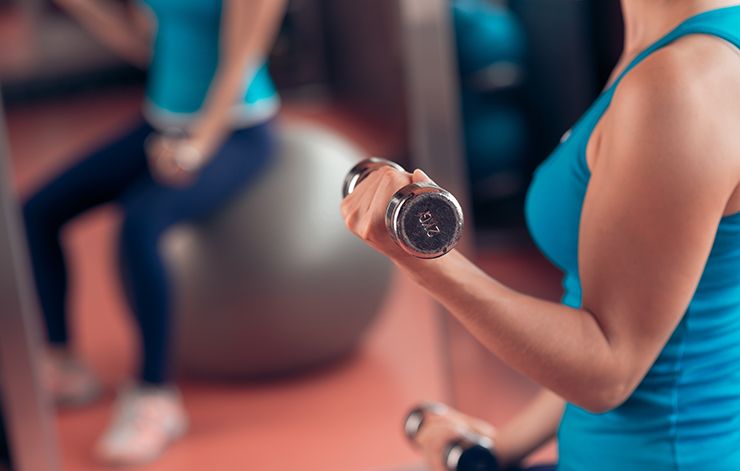 Shutterstock
ShutterstockIt's important for those who are new to weight-lifting and dealing with the fatigue, soreness, and doubt that often come with this new workout to remember that it'll start to feel easier over time, says Meghan Kennihan, a personal trainer and running coach in Chicago. "Most of my clients find that with each training session, they're able to increase their mind-body connection, which ultimately leads to more stability and coordination," says Kennihan. "The lifts will eventually feel more natural, and you'll also start to feel more confident in your form." If after a few sessions you're still feeling intimidated, consider hiring a personal trainer, she suggests, who can help you master the fundamentals so you can more easily train on your own.
Soreness isn't the only way to gauge effectiveness.
 Shutterstock
ShutterstockMany beginners often measure the effectiveness of their workouts by how sore they are. But soreness is an indicator of muscle damage, which is just one of the mechanisms—and probably the least important one—of trying to build muscle, says Kennihan. "Some soreness is good, but if it's excessive, it can actually prevent you from getting in a quality workout later in the week," she says. "Building a strong body over time should be the long-term goal, not making yourself so sore that you can barely walk the next day."
You can't out-train a bad diet.
 Shutterstock
ShutterstockNo matter how much progress you're making in the weight room, you'll sabotage your efforts if you aren't following a healthy eating plan. (Get started with Eat Clean to Get Lean, our 21-day clean eating plan.) "The person who consumes a whole-foods diet and stays active will have a better body than the person who trains all day but eats processed and junk foods," says Kennihan. When you're lifting weights, you'll want to be sure you are consuming enough protein (which helps build muscle), as well as healthy fats and carbohydrates (which keep you energized, satiated, and also help you recover from your workouts). "Good nutrition and training are essential for your health and strength," she says.
Advertisement - Continue Reading Below
Slow it waaay down.
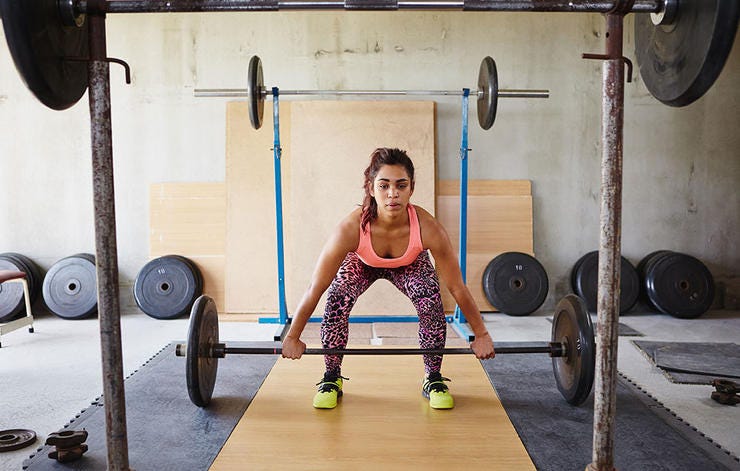 Shutterstock
ShutterstockWhen you're starting a weight-lifting program, it can be tough to remember proper technique—and tempting to fly through your workout without focusing on your form. However, this is a surefire way to get injured, says Julian Hayes, author of Body Architect. "The best way to ensure your long-term safety is to learn proper technique for all of the exercises you're doing, which means you should start with basic moves and stick to them for a while," says Hayes. After all, basic exercises will help you establish a solid foundation upon which the more advanced moves are built. (Here are 8 effective exercises for weight loss and how to do them properly.) And whatever you do, remember the phrase "quality trumps quantity," adds Hayes. "It may be tempting to think that the more exercises you do per session, the better your results will be, but that isn't the case," he says.
If you hate your weight-lifting workout, try a new one.
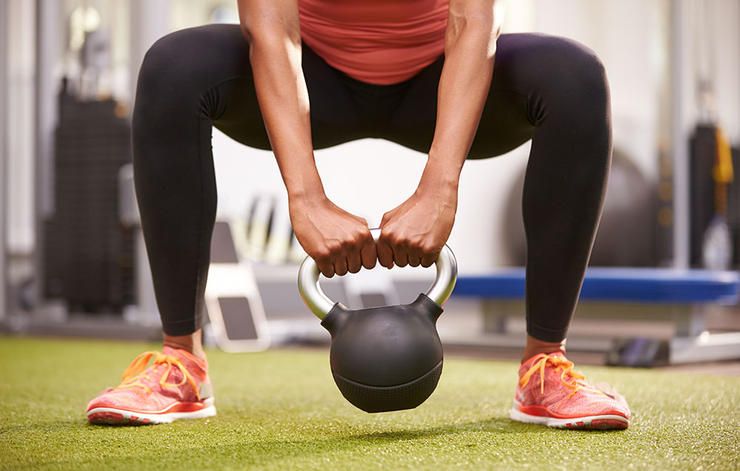 Shutterstock
ShutterstockIt may sound crazy, but it can be helpful to approach your weight-lifting routine as you would dating, says Hayes: It's perfectly acceptable to play the field until you land on The One. "Try multiple exercises and workouts until you find the one that resonates with you and that feels the most fun," says Hayes. "Finding a few weight-training routines you enjoy is crucial, because it improves the odds that you'll actually stick to it over time." (Here are 10 strength-training moves to start with.)
The best way to make progress is by taking rest days.
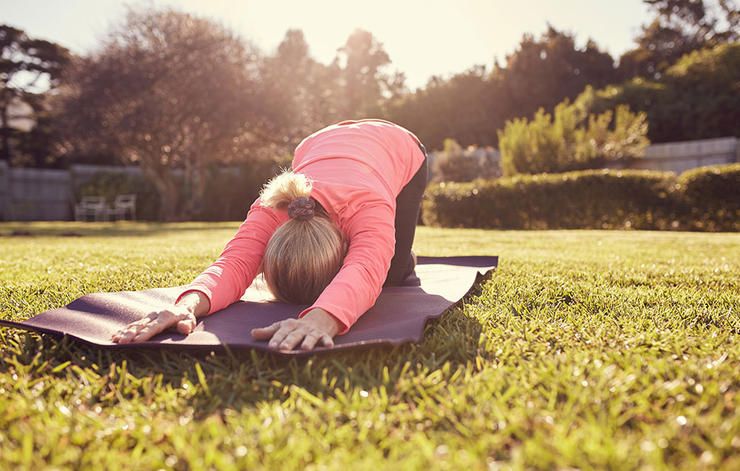 Shutterstock
ShutterstockBelieve it or not, all of the hard work you're putting in at the gym won't lead to impressive results if you're not giving your body a break. That's because getting enough rest ensures that the physiological changes you're working so hard to make actually take place, says Maurice D. Williams, a National Academy of Sports Medicine master trainer. "Generally speaking, you'll want to take about 48 hours of rest between your weight-training workouts," he says, and recommends weight training two to three times a week and doing cardio three to five times a week.
Advertisement - Continue Reading Below
Advertisement - Continue Reading Below
Advertisement - Continue Reading Below

